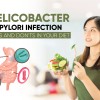
Biotics for overall health
Digestion has always been an important area of research as it affects the overall health of an individual due to the balance or imbalance of healthy bacteria in the gut lining. Any digestive problem disrupts the physical, mental as well as emotional health of an individual. Many lifestyle disorders start because there is something wrong in the digestive tract.
'Biotics' is the recent science under study that aims at the benefits on the overall health of an individual. The term 'biotic' literally means 'relating to or resulting from micro-organisms'. The microbiome of our gut may be pathogenic or non-pathogenic, the balance maintenance of which is the most crucial role of biotics.
Probiotics - Probiotics (good bacteria) are the live microbes that are present in fermented foods such as yoghurt, curd, pickled vegetables, kefir, sauerkraut, miso, kombucha tea, tempeh and kimchi. They are also available in the market as tablets, capsules and powders containing live microbes in dried form. They help in maintaining the gut microflora, whose imbalance may be caused by certain medications such as antibiotics, illness and poor diet. Whenever probiotics are consumed in adequate amounts, they promote the growth of good bacteria and kill the bad bacteria of the intestine. Probiotics are also effective in the treatment of a wide spectrum of gastrointestinal diseases such as diarrhoea. They also help in preventing travellers' diarrhoea. Type as well as dose taken of probiotic varies and so does its effectiveness in diarrhoea prevention.
Prebiotics - Prebiotics are specialised non-digestible plant fibers that promote the growth of healthy bacteria in the gut. So basically they are not the bacteria but the food that the good bacteria residing in your body likes. Fruits and vegetables containing complex carbohydrates are the prebiotics, which remain undigested in the gut and act as the substrate for bacterial growth which reproduce and grow exponentially in numbers by fermenting the probiotic. This further leads to production of substances such as short chain fatty acids which lower the pH level and aid in immune responses, help calcium to be absorbed better and improve bowel consistency. They are even present naturally in human breast milk from where they reach the infant's gut and promote the growth of good bacteria. Examples are garlic, artichoke, onion, green bananas, asparagus etc.
Postbiotics - The postbiotics are the bioactive metabolites produced by probiotic bacteria when they consume prebiotics which includes short chain fatty acids (SCFA), microbial cell wall fractions etc. They possess immunomodulatory effects. Also postbiotics are helpful in treating digestive problems such as Inflammatory bowel disease and diarrhoea. In short, they have immuno-modulatory, antioxidant, anti-obesogenic, anti-hypertensive, hypocholesterolemic, anti-inflammatory and anti-cancer properties.
Synbiotics - It is a combination of probiotics and prebiotics, where each either works independently to provide health benefit or the combination of two moves towards providing a health benefit, that may not be seen when given alone. Example of synbiotics is a combination of healthy bacteria such as Lactobacillus species and lactose sugar that works towards selectively promoting the growth of lactobacillus bacteria.
All these biotics - prebiotics, probiotics, synbiotics and Postbiotics come under the category of functional foods. Balanced diet in combination with biotics help to ensure health benefits and a healthy gut microflora. Individualise your diet by adding prebiotic and pro biotic food of your choice for a synbiotic relationship.






